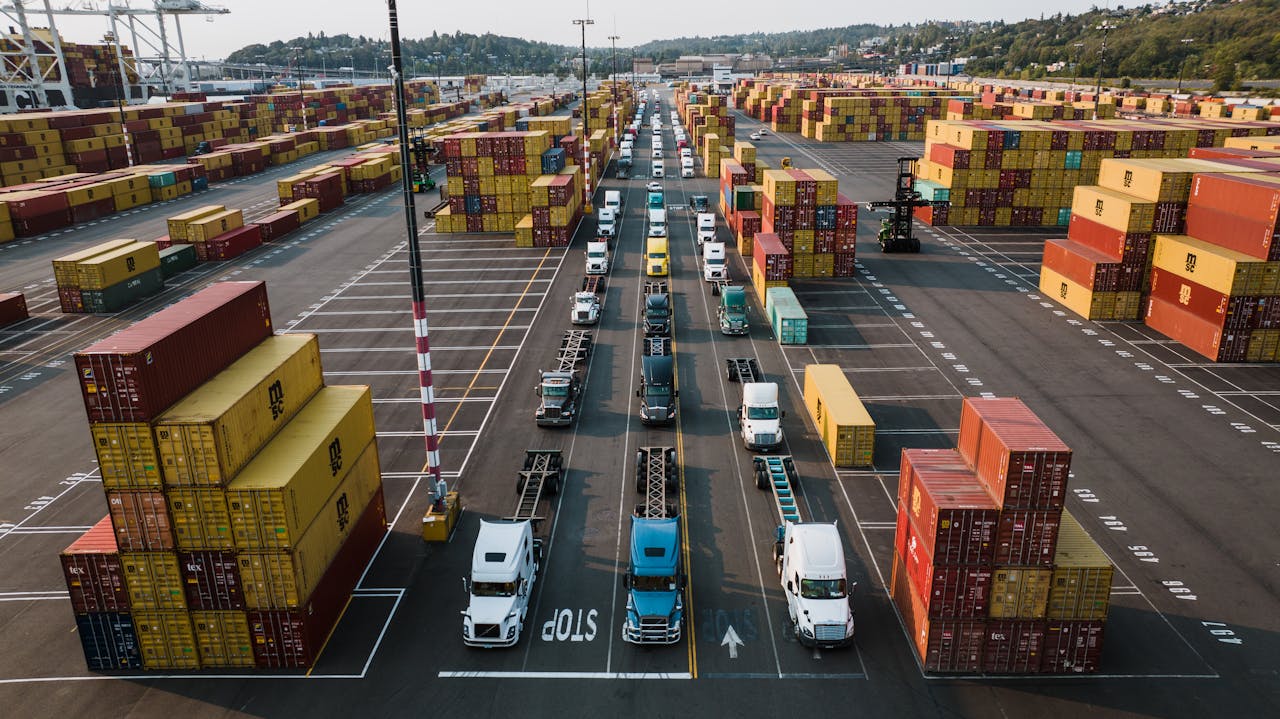When it comes to transporting oversized cargo from ports to highways, securing wide load permits is crucial for a seamless operation.
At Reliable Permit Solutions LLC, we understand that coordinating permits across multiple jurisdictions requires expertise and precision.
The Journey Begins: Port Authority Requirements
Ports serve as critical gateways for oversized cargo entering our transportation network.
Each port authority maintains specific regulations for handling and transporting oversized loads.
These requirements often include detailed documentation, safety protocols, and designated routes for cargo movement within port premises.
Bridging Port and Highway Regulations
The transition from port to highway involves careful coordination between different regulatory bodies.
Port authorities typically require separate permits from those needed for highway transport, creating a complex web of documentation.
Our experience shows that successful coordination often depends on understanding timing requirements, as port permits may have different validity periods than highway permits.
Multi-Jurisdictional Challenges
When transporting oversized loads from ports to their final destination, carriers often cross multiple jurisdictions.
Each state, county, and municipality may have unique requirements for wide load permits.
Some jurisdictions require:
- Pre-approved route surveys
- Specific escort configurations
- Time-of-day restrictions
- Special bridge crossing protocols
Navigating Different Permit Systems
Modern permit acquisition involves working with various online portals and systems.
Reliable Permit Solutions LLC specializes in managing these different platforms efficiently, ensuring all necessary permits are secured on time.
Some states operate automated permit systems, while others require manual processing, adding another layer of complexity to the coordination process.
Route Planning and Safety Considerations
Strategic route planning is essential when coordinating port-to-highway transport.
This includes:
- Identifying low bridges and overhead obstacles
- Planning for construction zones
- Coordinating with utility companies
- Scheduling around peak traffic periods
The Role of Technology in Permit Coordination
Advanced mapping software and real-time tracking systems have revolutionized how we handle wide load permits.
These tools help identify optimal routes and potential obstacles before the journey begins.
Digital permit management systems allow for quick modifications when unexpected changes occur.
Timing and Scheduling Considerations
Proper timing is crucial when coordinating multiple permits.
Carriers must consider:
- Port operating hours
- Highway movement restrictions
- Seasonal weight limits
- Weekend and holiday regulations
Emergency Protocol and Contingency Planning
Sometimes, despite careful planning, unexpected situations arise.
Having established relationships with permitting authorities helps expedite emergency permit modifications.
Reliable Permit Solutions LLC maintains open communication channels with various agencies to handle such situations effectively.
Cost Management and Efficiency
Strategic permit coordination can significantly impact transportation costs.
Understanding fee structures across different jurisdictions helps optimize routing and timing decisions.
Effective coordination often leads to reduced delays and better resource utilization.
Environmental Compliance
Modern transportation logistics must consider environmental regulations.
Some jurisdictions require additional permits for environmentally sensitive areas or during specific seasons.
Industry Best Practices
Successful port-to-highway coordination relies on established best practices:
- Early permit application submission
- Comprehensive route surveys
- Regular communication with authorities
- Detailed documentation maintenance
Ready to Streamline Your Permit Process?
Getting your wide load permits shouldn’t be complicated.
Let Reliable Permit Solutions LLC handle your permit coordination needs with our expertise in multi-jurisdictional transportation compliance.
Call us today to discuss your specific requirements and learn how we can simplify your port-to-highway permitting process.

